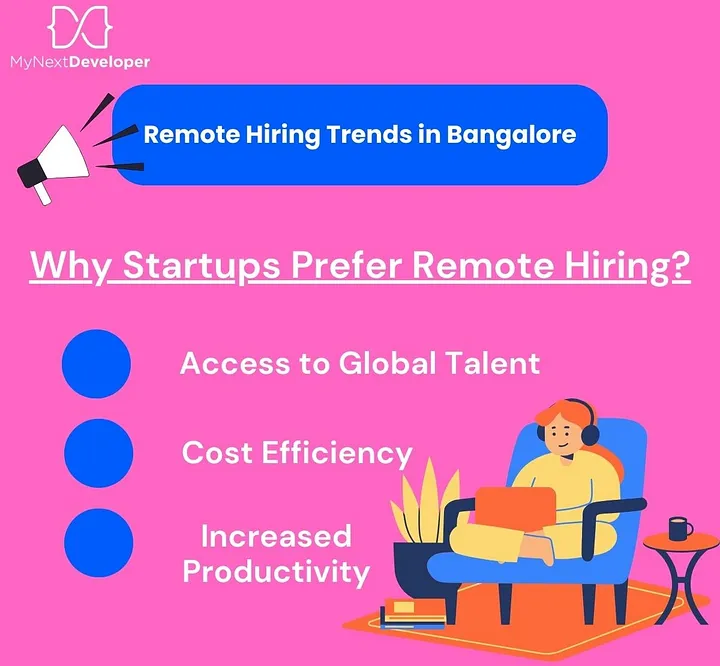The Future of Remote Work: Balancing Flexibility and Employer Expectations
The Future of Remote Work: Balancing Flexibility and Employer Expectations
Remote work has been a hot topic of discussion for the past few years, primarily due to its potential to transform the workplace- no commutes, increased autonomy, and enhanced control over one’s personal and professional life. However, as companies become stricter with remote work policies and workers push back, there is also an invisible struggle. Can these newfound freedoms be sustained in the future, or are we moving towards a corporate reset? Let’s dive deeper.

The Shift in Power- Employee versus Employer
With the pandemic, the need to work remotely suddenly dawned, and businesses had no choice but to resort to the trend, thereby giving the workers room to operate in any preferred location. Productivity did not just survive, it thrived. A survey conducted by McKinsey in 2023 reported that 87% of the workforce preferred having at least some sort of remote flexibility. Meanwhile, many companies have imposed rigorous rules, marking the return of traditional work-from-office setups. This negotiation is transforming workplace culture, compelling both sides to rethink expectations and redefine success.
The Hybrid Work Model: A Compromise or a Conflict?
Hybrid working models assist organizations in seamlessly navigating this transition; however, are they appropriate? Although they empower workers to experience flexibility, the models have some logistical complications.
- For Employees: Those who shifted to a remote work setup during the remote work boom are now facing a challenge of how they will balance their jobs and lifestyles.
- For Employers: Employers are facing problems in maintaining team cohesiveness, fostering collaboration, and embracing a workplace culture, thus requiring improved strategies for engagement and performance measurement.
The actual question arises: Is hybrid work a viable model or just a temporary fix? Whether or not hybrid work is viable, depends entirely on organizations’ willingness to implement policies that prioritize flexibility yet also support operational effectiveness.
The Productivity Debate: Presence versus Performance
The in-person versus remote work productivity debate remains contentious, with businesses still in the midst of the dispute, each side having its supporters.
- Research: Studies from Stanford indicate that remote workers tend to be more productive as they’re prone to fewer distractions, and better time management while being spared of lengthy commutes.
- Traditional Mindset of Leadership: Some leaders still support the outdated idea of equating physical presence at the workplace with actual performance. However, forward-thinking businesses are changing how productivity indicators are defined by prioritizing outcomes over attendance.
Trust, Technology, and the Future Workplace
The new environment post-COVID-19 poses many new questions; perhaps the most significant one pertains to the roles of trust and tech in shaping and governing the workplace of the future.
- Trust: Rather than being concerned with time, the preoccupation now shifts to productivity, where employers no longer monitor time but monitor how much work is actually being done, hence fostering a sense of accountability rather than micromanagement.
- Technology: As artificial intelligence, virtual reality, and asynchronous workflows are poised to transform remote work culture, it is expected to become even more seamless.
- Policy reform: Businesses should implement policies that are both flexible and structured to treat remote workers and in-office employees fairly as well as create an impartial work environment and foster professional development.
Organizations that embrace these differences will thrive. Those who resist the change might lose their top workers to their wiser and forward-looking competitors who recognize the importance of work-life balance.
Conclusion: Workplace Revolution Unveiled
The struggle is underway, yet nothing is settled. Will organizations opt for flexibility and establish new office standards for work-from-home, or will they stick to the traditional norms? One thing is clear–employees value their freedom and work-life balance more than ever today.
The ones that recognize and respond to the demand for change will prosper. The ones that don’t? They risk falling behind in a forward-thinking global economy.
The next chapter of remote work is being written now. Are you ready for what’s coming?
Ready to build your tech dream team?
Check out MyNextDeveloper, a platform where you can find the top 3% of software engineers who are deeply passionate about innovation. Our on-demand, dedicated, and thorough software talent solutions are available to offer you a complete solution for all your software requirements.
Visit our website to explore how we can assist you in assembling your perfect team.




